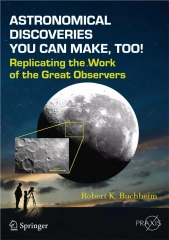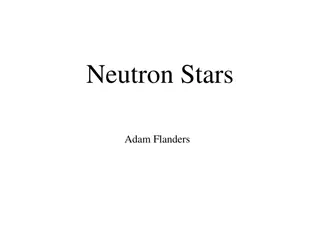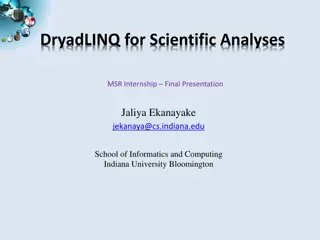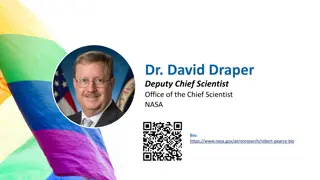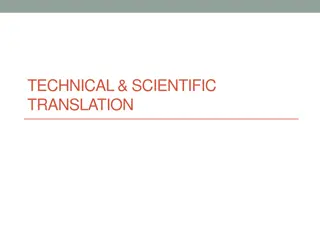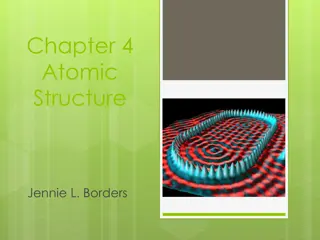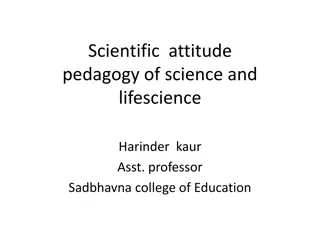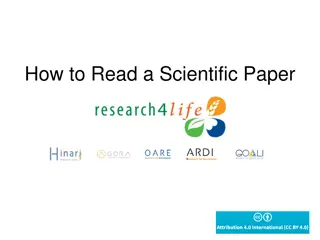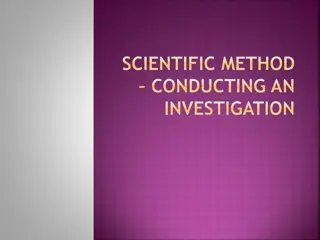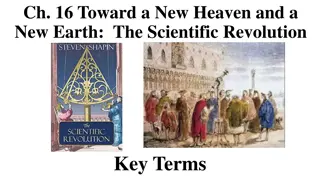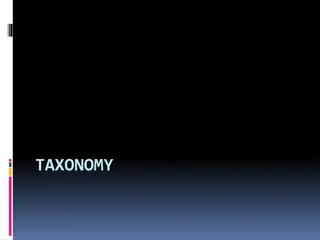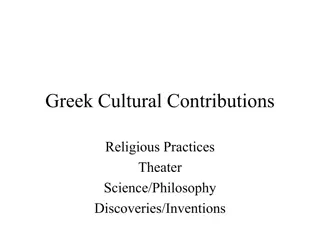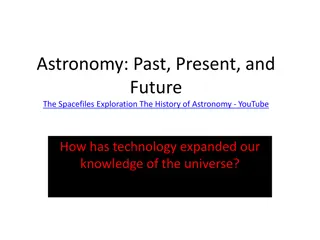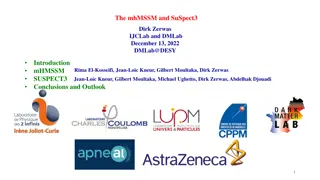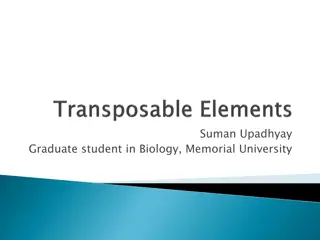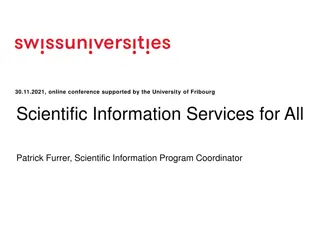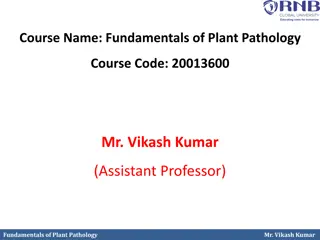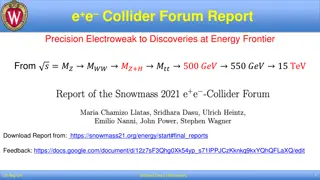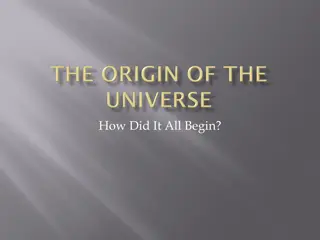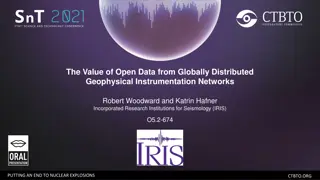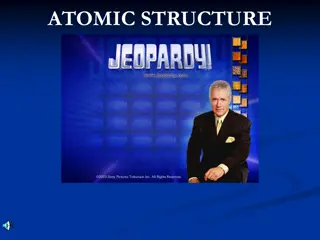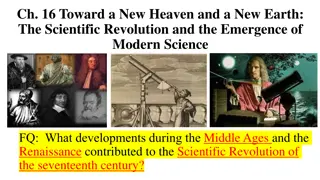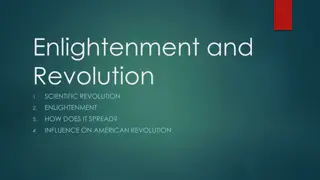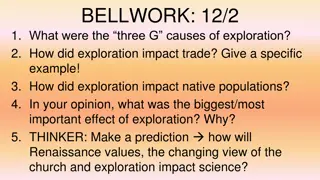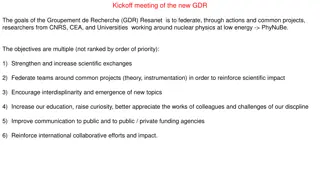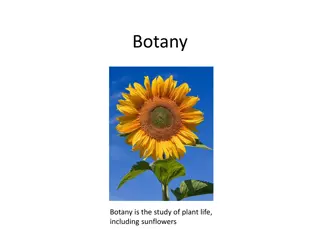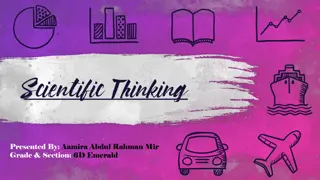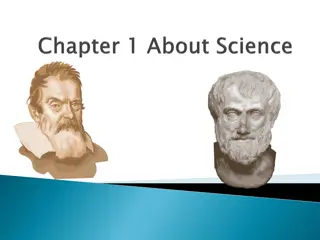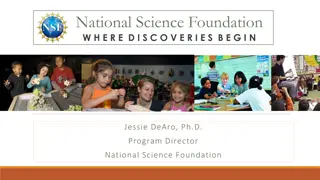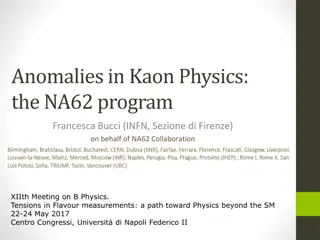PDF/READ❤ Astronomical Discoveries You Can Make, Too!: Replicating the Work of
\"COPY LINK HERE ; https:\/\/getpdf.readbooks.link\/3319156594\n\n[PDF READ ONLINE] Astronomical Discoveries You Can Make, Too!: Replicating the Work of the Great Observers (Springer Praxis Books) | Astronomical Discoveries You Can Make, Too!: Replicating the Work of the Great Observers (Springer P
2 views • 6 slides
Enhancing Scientific Literacy in Early Years Play-Based Learning
This PhD research proposal explores scientific literacy among children in play-based learning, focusing on everyday concepts and their application to scientific understanding. The study aims to implement Vygotsky's sociocultural theory to enhance children's scientific literacy through Vision 1 and V
7 views • 19 slides
Exploring the PROTEOCURE COST Action: Targeting Proteolysis for Proteome Remodeling
The PROTEOCURE COST Action focuses on targeting proteolysis for proteome remodeling, aiming to enhance Europe's scientific and technological capacity through collaboration across various fields and career stages. Participating in this initiative offers financial support, scientific networking, and c
0 views • 17 slides
Understanding Climate Change through Scientific Inquiry
Explore the role of science in addressing climate change, identifying scientific questions, discussing different disciplines involved, and analyzing the strength and limitations of scientific methods. Engage in activities to understand how scientific questions are formulated and categorized for inve
2 views • 22 slides
Exploring Neutron Stars: Discoveries and Characteristics
Neutron stars, initially proposed in 1933, have been the subject of various discoveries and studies. They are characterized by their unique properties such as compactness, high density, rapid spinning, and strong magnetic fields. Neutron stars are predominantly composed of neutrons, with other parti
2 views • 23 slides
Evaluation of DryadLINQ for Scientific Analyses
DryadLINQ was evaluated for scientific analyses in the context of developing and comparing various scientific applications with similar MapReduce implementations. The study aimed to assess the usability of DryadLINQ, create scientific applications utilizing it, and analyze their performance against
0 views • 20 slides
Overview of NASA's Office of the Chief Scientist and Deputy Chief Scientist Dr. David Draper
The Office of the Chief Scientist (OCS) at NASA plays a vital role in advising, advocating, and representing the agency in various scientific matters. Dr. David Draper serves as the Deputy Chief Scientist. The OCS leads initiatives related to scientific integrity, research security, citizen science,
2 views • 11 slides
Understanding the Scientific Method in Measurements and Calculations
Explore the scientific method in detail, including observing, collecting data, formulating hypotheses, testing hypotheses, and formulating theories with practical examples. Understand the importance of experimentation and how it leads to the development of scientific theories. Engage in activities t
6 views • 43 slides
Grade 7 Computer Science Discoveries Curriculum Overview
Grade 7 students in Computer Science Discoveries (CSD) explore web design, computing essentials, and gaming through problem-solving, web development, and physical computing. The course emphasizes understanding computer science concepts and offers Digital Tool Certification exams in Web Design and Ga
1 views • 6 slides
Understanding Scientific Translation: A Vital Tool for Advancing Knowledge
Scientific translation is a specialized practice that involves accurately translating complex terms in fields such as science and technology to facilitate global knowledge exchange and advancement. It requires precision, fidelity to source material, and a deep understanding of technical terminology
0 views • 60 slides
Overview of Atomic Structure Theories and Discoveries
Exploring the evolution of atomic structure theories, from Democritus' concept of indivisible atoms to Dalton's theory of elements and compounds. Discoveries by Rutherford and Thomson furthered our understanding of particles and electric charges within atoms.
0 views • 36 slides
Understanding Scientific Attitude and Pedagogy of Science
Scientific attitude involves open-mindedness, curiosity, rationality, and a desire for accurate knowledge. It includes characteristics such as critical thinking, respect for diverse viewpoints, and a reliance on verified information. Developing a scientific attitude involves studying superstitions,
1 views • 6 slides
Guide to Reading Scientific Papers
Understanding how to read a scientific paper is crucial for researchers and students alike. This guide covers the types of scientific papers, organization of a paper, and the key steps to properly read and comprehend complex scientific information. It explains the different sections of a paper, such
0 views • 20 slides
Understanding the Scientific Method: A Comprehensive Guide
Exploring the scientific method and principles of scientific investigation, this guide covers the mindset of a scientist, steps in the scientific method, and key components like formulating questions, conducting research, creating hypotheses, performing experiments, and analyzing results. It emphasi
1 views • 21 slides
Explore the Scientific Revolution
The Scientific Revolution marked a shift from the medieval worldview to a secular, rational, and materialistic perspective. Key terms such as geocentric and heliocentric conceptions, Cartesian dualism, rationalism, and the scientific method played pivotal roles in shaping this transformative period.
7 views • 10 slides
Understanding Taxonomy and Scientific Classification
Explore the world of taxonomy and scientific classification, from the discipline of classifying organisms to assigning scientific names using binomial nomenclature. Learn the importance of italicizing scientific names, distinguish between species, and understand Linnaeus's system of classification.
0 views • 19 slides
Understanding the Basic Science Hypothesis and Writing Techniques
Exploring the concept of the basic science hypothesis, its importance in research, and tips for effective hypothesis writing. The scientific method, historical perspectives from Karl Popper to Paul Feyerabend, and the role of serendipity in scientific discoveries are discussed.
0 views • 61 slides
Greek Cultural Contributions: From Olympics to Theater
Ancient Greek civilization made significant cultural contributions in various aspects such as religious practices, theater, and scientific discoveries. The Greeks had a rich tradition of honoring their gods through events like the Olympics and theatrical performances that continue to fascinate audie
4 views • 26 slides
Evolution of Astronomy: From Ancient Civilizations to Modern Discoveries
Explore the history of astronomy from ancient Egyptian beliefs in Ra to the groundbreaking theories of Copernicus and Galileo. Witness how technology has revolutionized our understanding of the universe, leading to discoveries such as the heliocentric model and Kepler's laws of planetary motion.
0 views • 25 slides
Exploring the mhMSSM and SuSpect3 in Particle Physics
Explore the history and significance of the mhMSSM and SuSpect3 in particle physics, including the development of the MSSM, pMSSM, SuSpect calculator, and key discoveries like the R=+1 particle and relic density studies. Learn about supersymmetric particles, models like mSUGRA and NMSSM, and implica
0 views • 17 slides
Trailblazing Maize Cytogeneticist: Barbara McClintock's Revolutionary Discoveries
Barbara McClintock, a pioneering geneticist, revolutionized the field of maize cytogenetics through her groundbreaking discoveries on genetic recombination, transposition, and gene expression. Her innovative techniques and concepts reshaped our understanding of chromosomes and gene regulation, leadi
0 views • 21 slides
Scientific Services for All - Enhancing Scientific Information and Services
This online conference, supported by the University of Fribourg, focuses on providing scientific information and services for all. Led by Patrick Furrer, the Scientific Information Program Coordinator, the event delves into creating a network of services, developing a coordination structure, and sho
0 views • 12 slides
Fusion Science Department Enabling Research Projects 2021-2023
The Fusion Science Department Enabling Research Projects for 2021-2023 focus on developing novel fusion-relevant scientific and technological ideas. These projects, led by Principal Investigators, are distinct from main work packages and involve scientific planning, team collaboration, and resource
0 views • 11 slides
Evolution of Plant Pathology: From Ancient Remedies to Modern Discoveries
Uncover the rich history of plant pathology, from ancient practices in Vraksha Ayurveda to modern breakthroughs by scientists like Anton de Bary and Alexander Fleming. Explore the development of mycology, key discoveries in disease management, and the impact of plant pathogens on historical events l
0 views • 16 slides
Advancements in High-Energy Collider Technology and Discoveries
Explore the latest developments in collider technology, focusing on precision electroweak measurements and discoveries at the energy frontier. Reports highlight advancements in circular colliders, linear colliders, and the status of machine designs and risks. Key topics include luminosity, energy re
0 views • 19 slides
The Origin of the Universe: A Journey Through Scientific Theories and Discoveries
The concept of the universe's beginning has evolved over time, with early beliefs in its eternal nature shifting to the acknowledgment of a starting point. Pioneering scientists like Albert Einstein and Sir Fred Hoyle contributed to this transformative understanding, challenging traditional views. E
0 views • 27 slides
Leveraging Open Data for Global Seismic Discoveries
Geophysicists Woodward and Hafner highlight the transformative power of open data from distributed geophysical networks, emphasizing its role in advancing scientific research, enhancing operational capabilities, and contributing to the mission of ending nuclear explosions. They underscore the value
0 views • 9 slides
Atomic Discoveries: Unveiling the Secrets of the Microcosm
Explore the realm of atomic structure and key discoveries through experiments such as the cathode ray tube, Milliken's oil drop experiment, and Rutherford's gold foil experiment. Delve into the world of electrons, isotopes, and quantum theory as you uncover the fundamental building blocks of matter
0 views • 55 slides
The Scientific Revolution: From Medieval Roots to Modern Discoveries
Developments in the Middle Ages and the Renaissance laid the foundation for the seventeenth-century Scientific Revolution. This transformation was influenced by advancements in ancient knowledge, close observation of nature, mathematical reasoning, and technological innovations. Figures like Coperni
0 views • 21 slides
Enlightenment and Scientific Revolution: Impact and Spread
The Renaissance and Reformation planted seeds for the Scientific Revolution by fostering curiosity and challenging traditional beliefs. The shift from the geocentric to heliocentric theory revolutionized understanding of the universe. The Scientific Method emerged, leading to groundbreaking discover
0 views • 16 slides
Impact of Exploration and Scientific Revolution on Society
Exploration in the age of discovery was driven by economic, political, and religious motives, impacting trade and native populations while leading to significant scientific advancements and changes in societal beliefs. The Scientific Revolution challenged traditional views with new scientific method
0 views • 19 slides
Impacting Research: Changing Lives and Driving Discoveries
Unlock the potential of purposeful and actionable research to make a difference in people's lives. Dive into a powerhouse of discoveries and innovation that drives change and impact in our society. Explore the realm of impactful research that is shaping the future and improving the world we live in.
0 views • 4 slides
Goals and Actions of GDR Resanet in Nuclear Physics
GDR Resanet aims to unite researchers from CNRS, CEA, and Universities in nuclear physics at low energy through collaborative projects. The objectives include enhancing scientific exchanges, fostering interdisciplinary work, improving education and communication, and strengthening international coll
0 views • 4 slides
Historical Discoveries and Traditions Summary
Explore the fascinating historical discoveries and traditions shared - from H.L. Mencken's book on American English to the evolution of Halloween, Nicolaus Copernicus's astronomical revelations, and the transition from ancient runes to the Roman alphabet. Delve into the impact of these significant c
0 views • 5 slides
Overview of Botany: Study of Plant Life and Its Importance
Botany, the study of plant life, encompasses a wide range of topics from herbalism to modern scientific discoveries. Understanding botany is crucial as plants provide food, medicine, and essential products for life. This field has a rich history dating back to ancient civilizations and continues to
0 views • 9 slides
Understanding the Scientific Method: Pre-Test and Daily Agenda
Explore the process of science with a pre-test on the scientific method, followed by a detailed daily agenda covering activities like bell-ringers, reviews, and experimental design. Understand the nature of science, scientific reasoning, and the importance of variables, groups, and constants in inve
0 views • 51 slides
The Significance of Scientific Research in Islam
Scientific research in Islam is encouraged as a religious and civilizational requirement, emphasizing the pursuit of knowledge through specialized research. Islam promotes the seeking of wisdom and knowledge, with believers seen as deserving of knowledge found through effort. This pursuit of knowled
0 views • 10 slides
Evolution of Scientific Thought and the Scientific Method
Explore the evolution of scientific theories and methodologies through the works of influential figures like Aristotle, Copernicus, Galileo Galilei, and Francis Bacon. From the geocentric beliefs of Aristotle to the heliocentric model proposed by Copernicus, witness the shift in paradigms and the em
0 views • 14 slides
National Science Foundation - Where Discoveries Begin
The National Science Foundation (NSF) is dedicated to promoting science progress, advancing national health, prosperity, and defense. Under the direction of Program Director Jessie DeAro, Ph.D., NSF offers various funding opportunities and resources for researchers and grantees to support their work
0 views • 21 slides
Insights into Kaon Physics: Unraveling Anomalies and New Discoveries
Delve into the world of Kaon Physics, from the historical discoveries like CP violation to modern experiments testing fundamental symmetries. Explore anomalies challenging the Standard Model and the implications for new physics models. Discover the interplay of QCD and EW penguin contributions, unce
0 views • 27 slides
